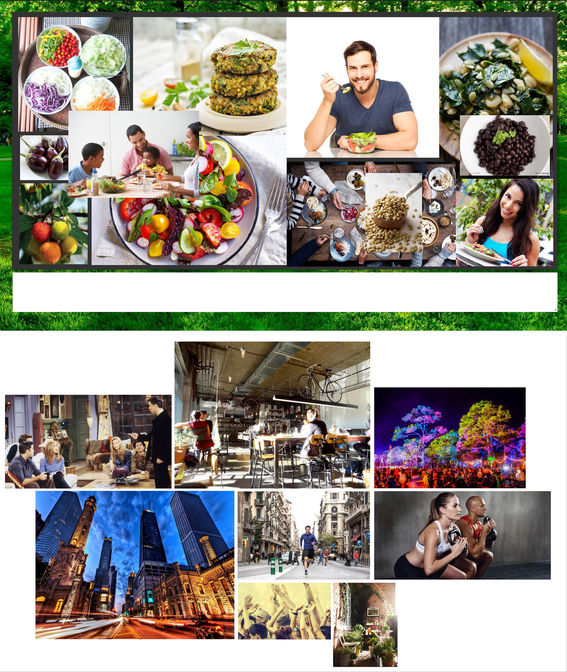Collaborative AI provides inspiration for designers
Researchers at Aalto university have developed a machine learning algorithm that collaborates with designers to create visual collages, called mood boards. The AI is integrated in a design tool, and makes recommendations, explains its choices, and adapts to the designer’s problem-solving process over time.
Inspiration can be hard to support using a computer. Creative processes evolve quickly and are exploratory in nature, so computers can struggle to keep up. An AI algorithm that gives suggestions that are weird and random is not useful and likely to be ignored by the designer, and an AI that is too conservative and only returns suggestions that match what has already been used is also not creatively useful. However by using a novel machine learning technique called a Cooperative Contextual Bandit (CCB) method, engineers and designers have developed an AI that strikes this creative balance.
Janin Koch, the researcher behind the work, says, "The advantages of the CCB method is that it is able decide whether to follow the current visual idea, or to explore new ideas depending on the current mood board. The ability of the new AI to work alongside designers encourages a form of human-computer collaboration in the design process."

The AI also learns from the current designer’s selection behaviour, and uses this behaviour to refine its suggestions. As part of their study the researchers asked a group of 16 designers to create mood boards with, and without the AI helping them. All designers use mood boards as inspiration tools in their work, from design fields including architecture, fashion, and graphic design. In the example on the right, the designer used the AI in the top image while working on a brief for a Health Store, while in the second worked without the AI on a banking firm's youth program.
The key finding was that the adaptability of the AI allowed it to help designers both when they were “on a roll” and when they were “stuck”. The AI can decide when to offer more explorative suggestions, and when to stick more closely to what’s already chosen. The designers therefore perceived the suggestions as novel without being too eccentric or useless. Even if the AI surprised the designer with unusual suggestions, as these were not completely outlandish, they were more inclined to find them original and useful. The majority of the designers therefore used the AI’s suggestions in their mood boards, and the AI-suggested images made up over a quarter of their final boards.
Further details about the study are available on the research group's website. The details of this successful trial are being presented at the CHI 2019 conference in Glasgow, and the team are now looking to apply the collaborative AI systems in professional context. “The next stage of our study will involve getting the AI out into the working practice, like being used in design agencies over the summer so we can see how it works over time,” Janin says.
Contact details
Name: Janin Koch
Languages: German, English
Email: Janin.Koch@aalto.fi
Name Professor Antti Oulasvirta
Languages: Finnish, English
Email: antti.oulasvirta@aalto.fi
Name Professor Andrés Lucero
Languages: Spanish, English, French
Email: lucero@acm.org
Read more news

Significant donation to boost pavement engineering research and education
Companies and associations in the field have donated €400,000 to the School of Engineering.
‘Mesoscale’ swimmers could pave way for drug delivery robots inside the body
Researchers have discovered how tiny organisms break the laws of physics to swim faster — such secrets of mesoscale physics and fluid dynamics can offer entirely new pathways for engineering and medicine.
Design strengthens industrial competitiveness – human-centered factory work at the core
Factory work is undergoing a transformation: new technologies and artificial intelligence are changing the content and roles of work. Aalto University’s Department of Design is studying this change from a human-centered perspective in the HiFive project.






